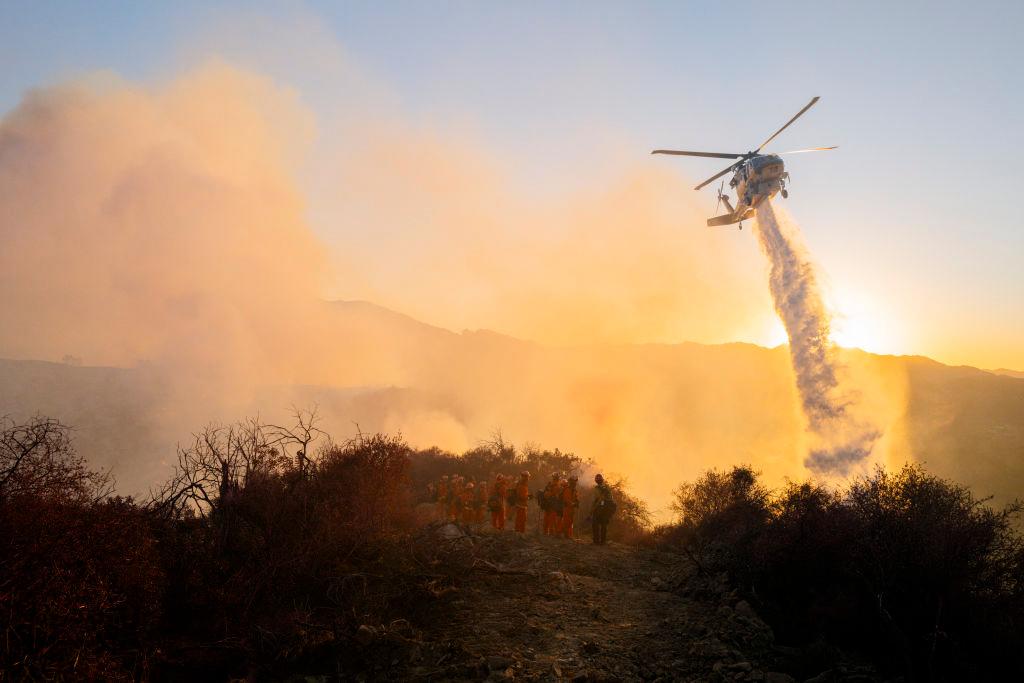Strong Santa Ana winds will continue to whip Southern California over the next few days, creating what the National Weather Service is calling a “particularly dangerous situation” as firefighters close in on their second week of battling the intense wildfires torching the region.
A wind advisory was already in effect for western Los Angeles County and much of Ventura County in the early morning hours of Jan. 13 as firefighters rushed to contain the deadly Palisades and Eaton fires.





